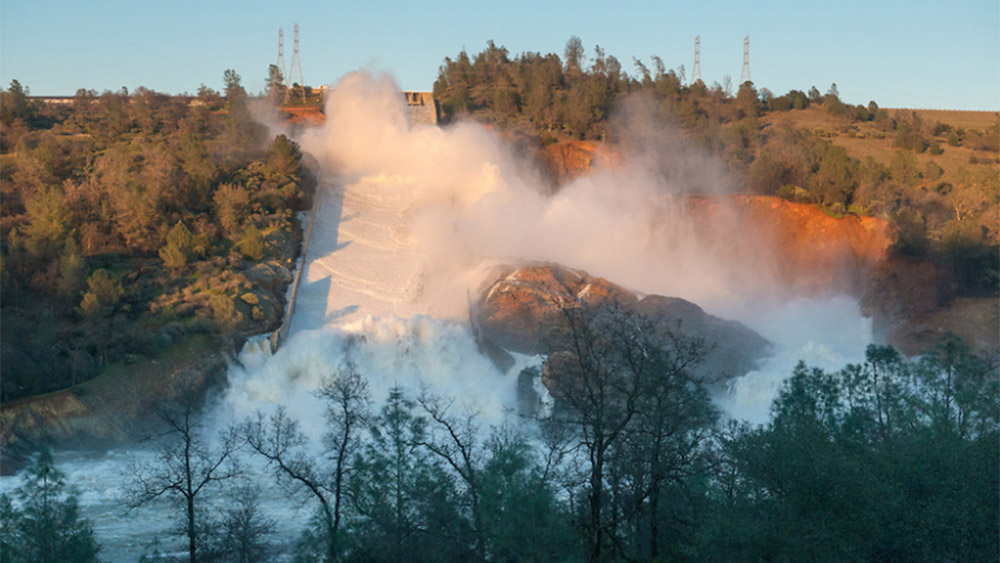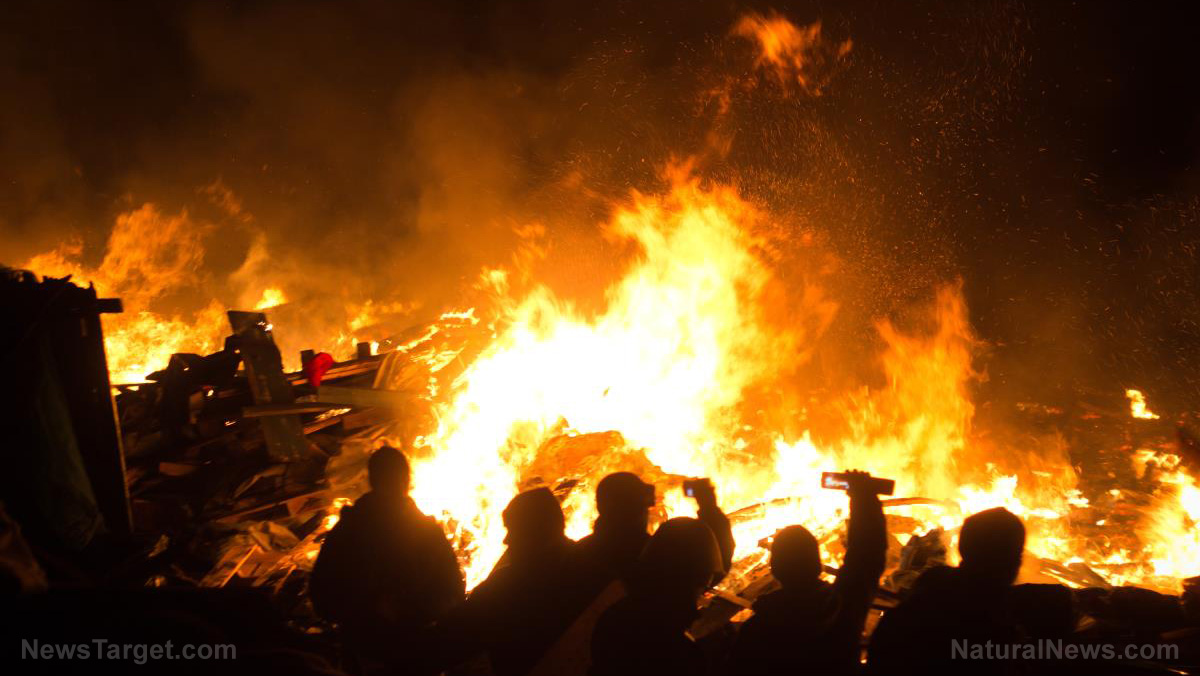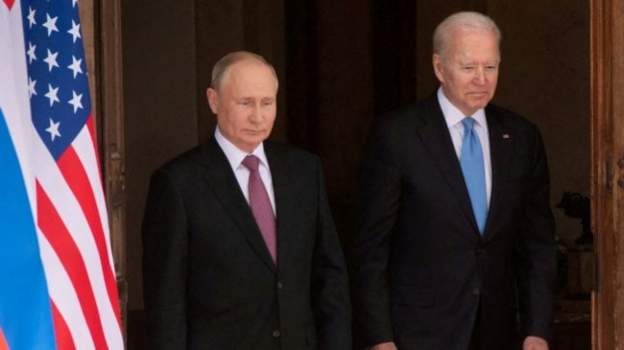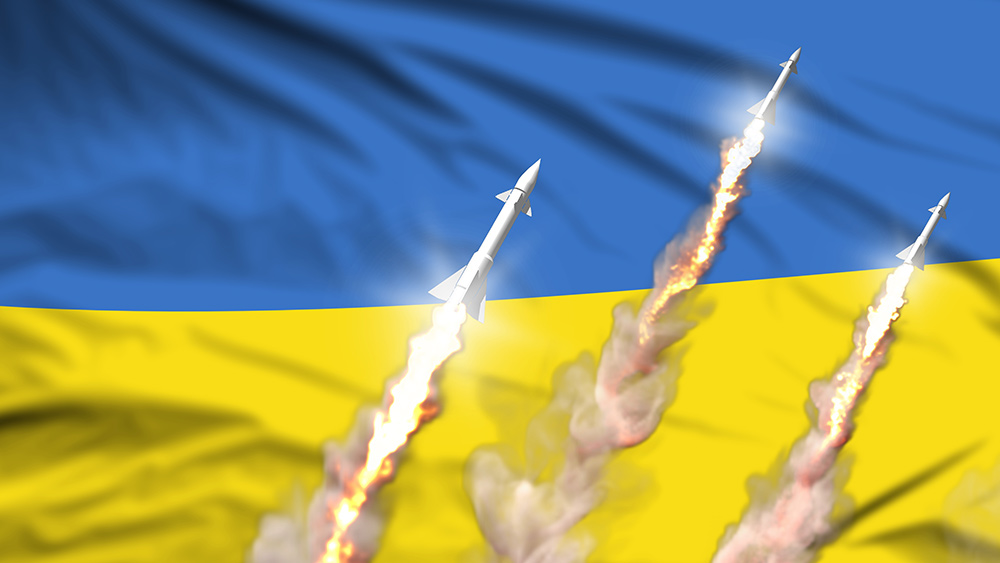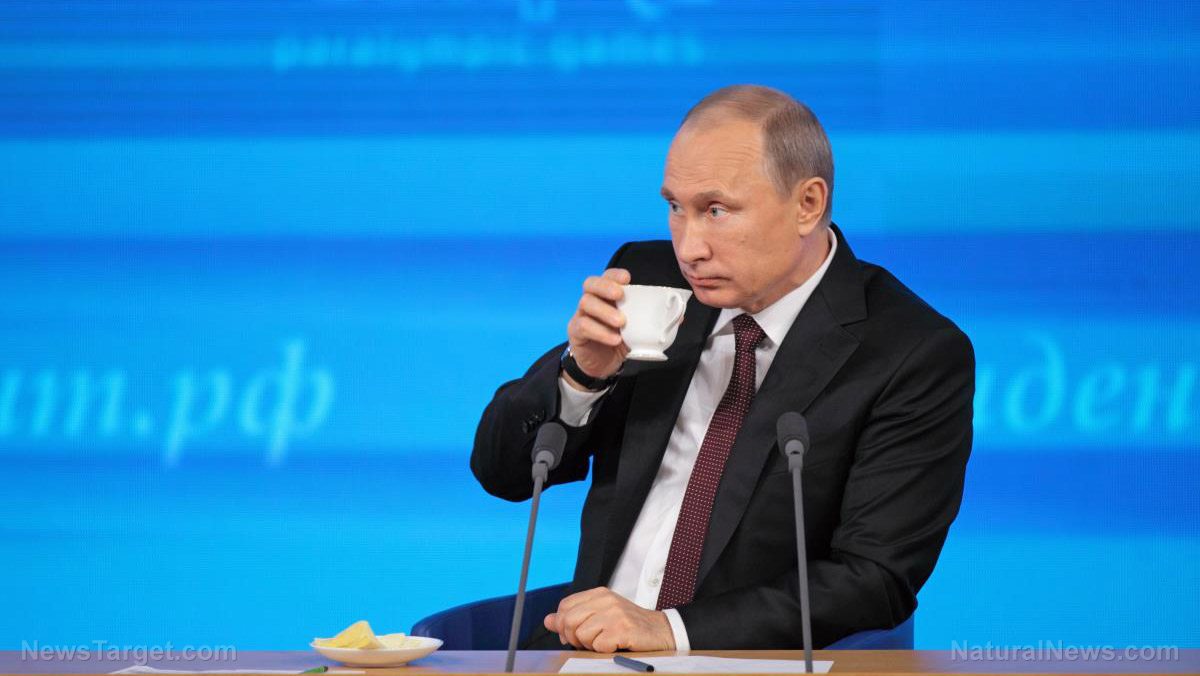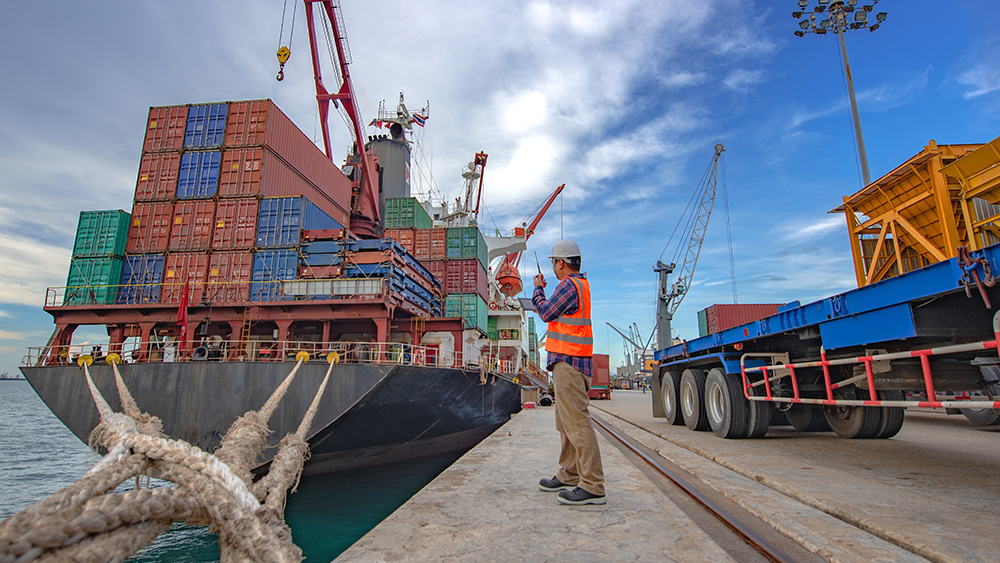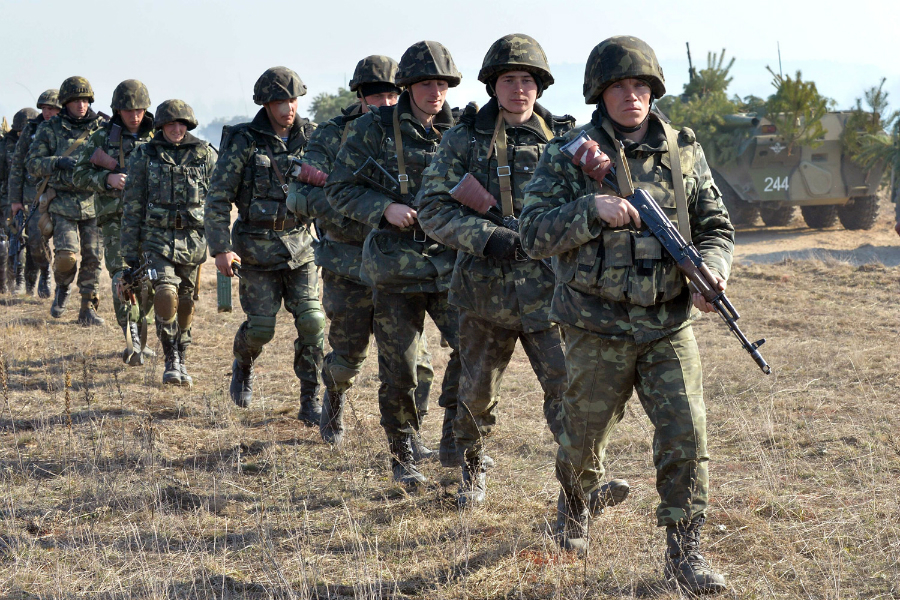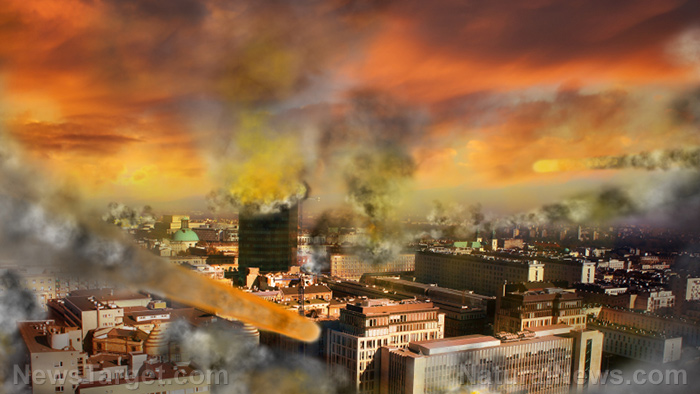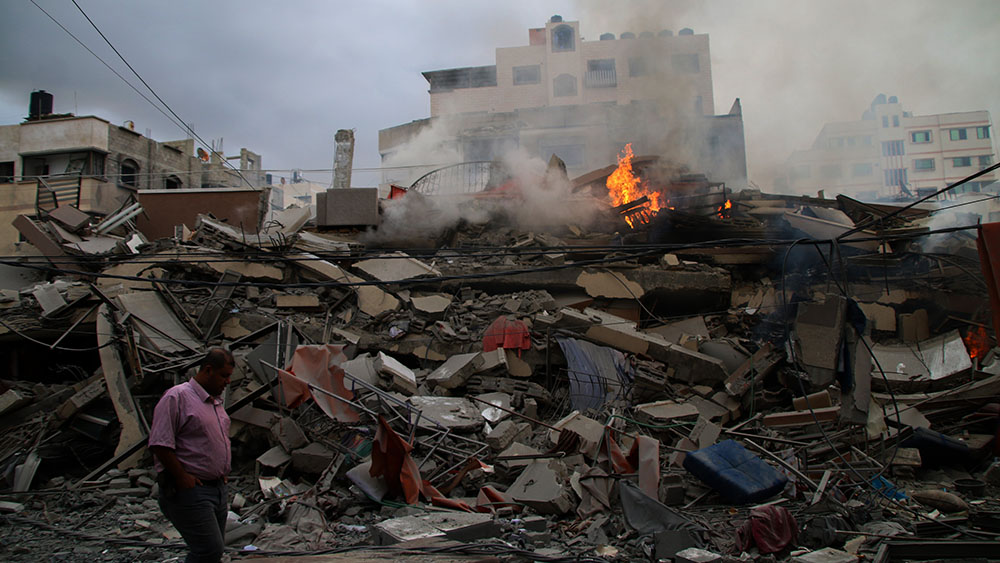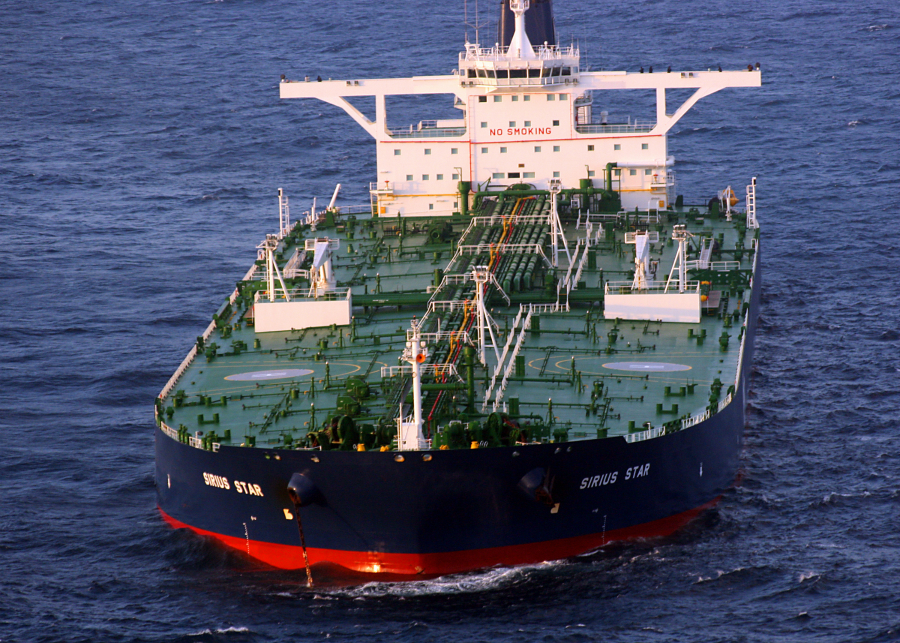Russia vows to respond in kind if West seizes its frozen assets
01/02/2024 / By Richard Brown

Kremlin spokesperson Dmitry Peskov has warned that Russia would retaliate in kind if Western nations proceeded with the potential confiscation of its assets. The remarks, made during a press briefing, come at a time of heightened tensions between Russia and the West, with economic sanctions being a focal point of contention.
Peskov asserted that Russian authorities had carefully assessed the unpredictability of the opposing side, noting their tendency to disregard international laws. He emphasized that, at present, the idea of confiscating foreign assets in Russia was purely theoretical but indicated that Moscow had prepared in advance for such a scenario.
Highlighting the consequences of the economic sanctions imposed by Western powers, Peskov remarked that they had not initially considered the potential backlash, referring to it as a “boomerang effect.” He added that individuals who initially supported the sanctions were now questioning the wisdom of their actions.
Notably, Peskov disclosed that Moscow had compiled a list of U.S., European and other assets that could be targeted for seizure if G7 nations decided to confiscate the $300 billion in frozen reserves belonging to the Russian state.
While acknowledging the theoretical nature of such considerations, Peskov stressed that any Western action of this kind would be tantamount to “theft” and a violation of international law, with severe repercussions for reserve currencies, the global financial system and the world economy.
Peskov cautioned that such actions would have serious consequences, eroding other countries’ confidence in the economic stewardship of the United States and the European Union. He underlined the potential undermining of these entities as economic guarantors. (Related: Russia boosts gold stock to cushion impact of US, EU sanctions.)
The ongoing tension is further fueled by reports that Washington proposed exploring ways to confiscate $300 billion in frozen Russian assets during a meeting of working groups from the G7 on February 24, 2024. This date marks the second anniversary of the commencement of hostilities in Ukraine, adding a temporal dimension to the already complex diplomatic and economic relations between Russia and the West.
Russia to challenge any seizure of its frozen assets through legal avenues
The legal intricacies surrounding the potential confiscation of Russian sovereign assets remain ambiguous, and Russia has consistently asserted its intention to challenge any such seizures through legal avenues.
Advocates for the confiscation of Russian assets argue that the war in Ukraine is unlawful, contending that the frozen Russian funds should be directed toward Ukraine for reconstruction or even to counter Russian forces.
In response, Russian officials have pointed to perceived questionable legality in past Western military interventions, notably citing the U.S.-led war in Iraq from 2003 to 2011. Some legal experts have raised concerns about the legitimacy of asset confiscation under international law.
As of now, no definitive decisions have been reached, and various countries, including the United States and Britain, would need legislative amendments to empower authorities to execute such seizures, as per sources cited by Reuters.
Since 2014, Russia has been gradually reducing its holdings of U.S. Treasuries. There are warnings that confiscating Russian assets might lead major powers, including China, to distance themselves from U.S. and European currencies and government bonds.
While the Russian central bank has not provided a detailed breakdown of the frozen assets, publicly available data from the start of 2022 indicates that a significant portion of the bonds and deposits are denominated in euros, with some in U.S. dollars and British pounds.
There have been suggestions from Russian officials that if Russian assets are confiscated, foreign investors’ assets held in special “type C” accounts in Russia might face a similar fate. The exact monetary value of these accounts remains uncertain, but Russian officials have indicated that it is comparable to the $300 billion of frozen Russian reserves.
Finance Minister Anton Siluanov underscored the significance of funds in the type C accounts last week, while Russia’s central bank opted not to comment on the matter.
Read more news about Russia at RussiaReport.news.
Watch this report about the the West’s plans to seize Russian assets.
This video is from the Mike Martins channel on Brighteon.com.
More related stories:
Russia and China pledge friendship, denounce the West.
Russia to resume foreign exchange purchases to boost currency reserves.
Russia to ban individuals from using cryptocurrency for domestic transactions.
Sources include:
Submit a correction >>
Tagged Under:
big government, bubble, bullion, central banks, chaos, conspiracy, dangerous, economic riot, European Union, finance riot, financial system, frozen assets, insanity, Kremlin, money supply, risk, Russia, seizure, US, World War III
This article may contain statements that reflect the opinion of the author
RECENT NEWS & ARTICLES
COPYRIGHT © 2022 RussiaReport.news
All content posted on this site is protected under Free Speech. RussiaReport.news is not responsible for content written by contributing authors. The information on this site is provided for educational and entertainment purposes only. It is not intended as a substitute for professional advice of any kind. RussiaReport.news assumes no responsibility for the use or misuse of this material. All trademarks, registered trademarks and service marks mentioned on this site are the property of their respective owners.

